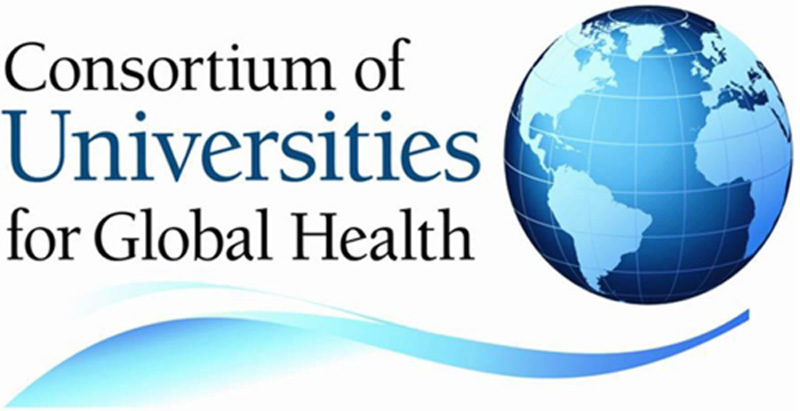February 5, 2020
Serious health-related suffering (SHS) afflicts over 61 million people worldwide, with over 80% of symptom burden occurring in low- and middle-income countries (LMICs). Palliative care – an interdisciplinary intervention aiming to relieve physical, psychological, social, and spiritual suffering for patients and caregivers arising from serious illness – can reduce SHS globally. While access to palliative care has been deemed an essential human right by the World Health Organization and other international entities, there are major gaps in palliative care access and delivery that disproportionately afflict those in LMICs. These gaps are exacerbated by a lack of trained workforce, lack of access to pain medications, and inadequate integration into health systems and healthcare delivery.
In this webinar, we will first define palliative care and its role in promoting the health and well-being of individuals and populations worldwide. Second, we will discuss major gaps and opportunities to improve palliative care access and delivery, particularly in LMICs. Third, drawing on the unique experiences of our expert speakers in Rwanda, Liberia, and Botswana, we will compare examples of interventions aiming to train palliative care workforce and build capacity at the national and regional level. Specifically, we will discuss educational initiatives, guidelines, and national policies implemented in partnership with local ministries of health and regional/international advocacy groups, with specific emphasis on interdisciplinary efforts to bolster nursing workforce and improve access to essential pain medicines. We will end with a question and answer session.
Speakers
William E. Rosa, PhD(c), APRN-BC, FCCM, FAANP, FAAN is an RWJF Future of Nursing Scholar, University of Pennsylvania School of Nursing, PhD Program, Philadelphia, PA. Mr. Rosa received his BSN magna cum laude from NYU Rory Meyers College of Nursing (2009) and was valedictorian of his MSN class, Hunter College (2014). Mr. Rosa spent one year with the Human Resources for Health Program in Rwanda, East Africa (2015-2016), contributing to the curriculum content for the first Masters-prepared nursing cohort in the country. He is the editor of three books on leadership, global health, and theory-guided practice and has contributed more than 130 publications in a host of diverse forums. Mr. Rosa has been recognized with numerous distinctions, including the international Spirit of Renewal Award from Sigma and the national Lillian Wald Service Award from the American Public Health Association Nursing Section. He serves on the editorial board for the Journal of Hospice & Palliative Nursing and as a board member for multiple global organizations. He is a Fellow of the American Academy of Nursing, the American Association of Nurse Practitioners, the American College of Critical Care Medicine, and the New York Academy of Medicine.
Christian Ntizimira, MD, MS graduated from Harvard Medical School, department of Global Health and Social Medicine, and he is the City Manager, Kigali, C/Can Foundation, and the former Executive Secretary of the Rwanda Palliative Care and Hospice Organization (RPCHO), a non-profit organization focused in home-based care in Kigali City. Dr. Ntizimira pioneered integration of palliative care and end of life care into health services rendered to Rwandan cancer patients and in the community settings. Through his program (2008-2013), more than 1500 health care providers and community health workers have learned the principles of cancer prevention control & palliative care leading to a five-fold increase in prescription of morphine, an essential pain medication. In 2016 he has been awarded as a young cancer leader and world cancer Regional, lead in 2018 for his outstanding contributions in cancer control in Rwanda and in Africa. In 2018 he became the first advocacy/policy champion among extraordinary individuals are making a significant contribution to developing palliative care in low- and middle-income countries for World Hospice and Palliative Care Alliance (WHPCA). From 2010–13, he was the director of Kibagabaga Hospital in Kigali. He has advised several governments on national palliative care policy, including Burundi, Rwanda and Senegal, on access to palliative care services. He was a member of the scientific Advisory Committee for the Lancet Commission on Global Access to Palliative Care and Pain Control. Ntizimira graduated in medicine from the College of Medicine and Health Sciences at the University of Rwanda in 2008. In 2011, he received a scholarship to study palliative care education and practice in the United States of America at Harvard Medical School’s Center for Palliative Care. He also trained as an African Pain Policy Expert at the University of Wisconsin. Ntizimira was named Young Cancer Leader by the Union for International Cancer Control in 2016 and Distinguished Young Leader by the Harvard Global Health Catalyst in 2017.
Moderator
Dr. Nauzley Abedini, MD, MSc is the Founding Chair of the Consortium of Universities for Global Health Palliative Care Working Group and a clinical fellow in Hospice and Palliative Medicine at the University of California, San Francisco. She is a former Fogarty Global Health Research Fellow and National Clinician Scholars Program alumnus with expertise in health services research and global medical education. Her interests are in improving access to palliative and end of life care through health system strengthening and capacity building. In addition to her role at CUGH, she currently serves on two national professional society committees aiming to enhance palliative care education and delivery within health systems.
